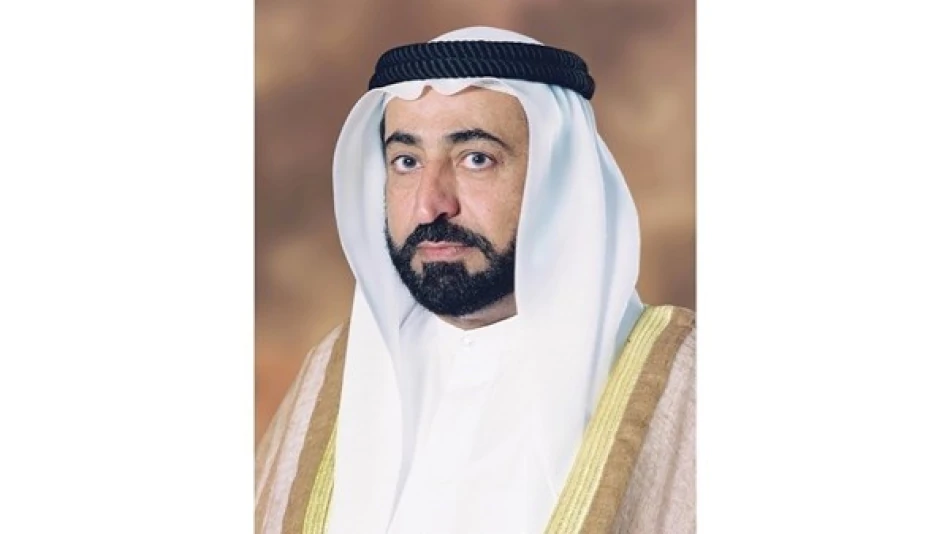
Sharjah Ruler Appoints Sultan Mohammed bin Mu'adhdh bin Huwaiden Al-Kutbi as Head of Municipality Affairs Department
Sharjah Reshuffles Municipal Leadership as UAE Emirates Modernize Administrative Structures
His Highness Sheikh Dr. Sultan bin Mohammed Al Qasimi, Ruler of Sharjah, has appointed a new head for the emirate's Municipal Affairs Department, signaling continued administrative modernization across UAE's northern emirates. The move reflects broader governance reforms as regional authorities adapt to rapid urban development and economic diversification pressures.
Strategic Administrative Restructuring
The royal decree transfers Sultan Mohammed bin Muadh bin Saeed bin Huwayden Al Ketbi from Sharjah's Human Resources Department to lead Municipal Affairs. His promotion to department head under the government's special positions system also grants him membership in Sharjah's Executive Council, elevating municipal oversight to the highest decision-making levels.
This cross-departmental transfer suggests Sharjah is prioritizing human resources expertise in municipal management—a logical approach as the emirate balances heritage preservation with modern infrastructure demands.
Context: UAE's Administrative Evolution
The appointment comes as UAE emirates increasingly professionalize their governance structures. While Dubai and Abu Dhabi have long operated sophisticated municipal systems, northern emirates like Sharjah are upgrading administrative frameworks to handle growing populations and economic complexity.
Sharjah's unique position as a cultural hub with significant industrial and residential growth creates distinct municipal challenges. The emirate must manage urban sprawl while preserving its UNESCO World Heritage sites and maintaining its reputation as the "Cultural Capital of the Arab World."
Implications for Urban Development
Infrastructure and Planning Priorities
The new leadership likely signals accelerated municipal modernization. Sharjah has been expanding its transportation networks, including the upcoming Sharjah Metro project, while developing new residential and commercial districts. Effective municipal coordination becomes critical as these projects advance.
Al Ketbi's human resources background may prove valuable in addressing workforce development within municipal operations—an often-overlooked aspect of urban governance that affects service delivery quality.
Economic Development Angle
For investors and businesses operating in Sharjah, streamlined municipal affairs could mean faster permit processing, clearer development guidelines, and more responsive public services. The emirate competes with neighboring Dubai and Abu Dhabi for investment, making efficient governance a competitive advantage.
The Executive Council membership ensures municipal concerns receive direct attention at the highest policy levels, potentially reducing bureaucratic delays that have historically challenged business operations in smaller emirates.
Regional Governance Trends
This appointment reflects broader patterns across the Gulf region, where traditional governance structures are incorporating modern administrative practices. Similar reforms in Saudi Arabia's municipal systems and Qatar's urban planning authorities demonstrate how Gulf states are professionalizing local government operations.
The emphasis on cross-departmental expertise—moving human resources professionals into operational roles—suggests recognition that effective governance requires both technical competence and people management skills, particularly as public sector digitization accelerates across the UAE.
Most Viewed News

 Layla Al Mansoori
Layla Al Mansoori






